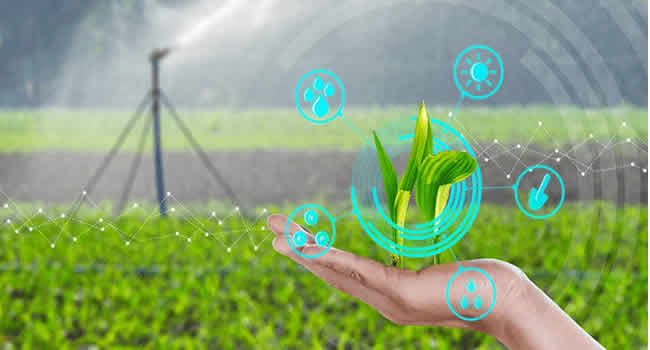Tech
Nigeria’s Cash2Cash joins Catalyst Fund fintech accelerator. 2 other things and a trivia

This line-up of stories will help you discover the latest happenings around the tech world, today.
1. Nigeria’s Cash2Cash joins Catalyst Fund fintech accelerator
Nigerian agritech startup, Crop2Cash, has, on Wednesday, announced joining Catalyst Fund’s ninth Inclusive Fintech cohort to access a global network of investors and corporate partners.
Crop2Cash unlocks affordable financing for smallholder farmers, providing digital finance solutions along the agriculture value chain.
The Nigerian startup joined the accelerator alongside two other African fintech startups from Kenya (Kazi) and SouthAfrica (HealthDart).
The global inclusive tech accelerator is an initiative of Catalyst Fund to support inclusive fintech innovators and facilitates the growth of innovation ecosystems in emerging markets.
Today, the Inclusive Fintech programme provides startups with catalytic grant capital, bespoke venture building support from emerging markets and fintech experts and access to a global network of investors and corporate partners.
Nigeria’s Cash2Crop is said to have gained access into the accelerator for being a startup building solutions designed to improve the resilience of underserved customers and communities.
The accelerator is supported by the UK Foreign, Commonwealth and Development Office (FCDO), JPMorgan Chase & Co., and latest partner PayPal, and fiscally sponsored by Rockefeller Philanthropy Advisors.
Tech Trivia: Before being known as PayPal, the company went by what name?
A. Confinity
B. The X-Change
C. MoneyMate
D. iCash.com
Answer: See end of post
2. Agritech startup Khula! raises $1.4m 2020 seed round
South Africa-based agri-tech startup Khula! has raised a ZAR20 million (US$1.4 million) seed funding round.
The startup made the announcement, on Wednesday, during the launch of its new app.
Khula! has been in an intensive pilot stage over the last 3 years, building an ecosystem of three platforms aimed at making the agricultural value chain more efficient.
READ ALSO: Nigeria’s GreenHouse launches pan-African fintech accelerator. 2 other things and a trivia
The Khula! Fresh Produce Marketplace allows farmers sell produce directly to formal market bulk buyers.
On the other hand, however, Khula! Funder Dashboard connects institutional investors with farmers who meet their funding mandates.
Recently integrated, the just-released Khula! Inputs App allows farmers to access approved agricultural inputs and services from leading suppliers.
According to local authorities, the startup is self-funded by founders Karidas Tshintsholo, Matthew Piper and Jackson Dyora for most of its pilot.
The closed seed round worth ZAR20 Million (US$1.4 million) was led by AECI, featuring E-Squared Investments.
3. Kenya’s Wapi Pay secures $2.2m funding to digitise trade payments
Wapi Pay, a Kenyan fintech startup Wapi Pay, secured a US$2.2 million pre-seed funding round.
According to the fintech player, the fund will help it engage regulators for licensing across Africa, and drive higher and sustained growth.
Wapi Pay was founded in 2019, to deliver platform-to-platform integrations, global accounts and virtual wallets that will offer its partners and customers convenient global payments and financial products.
The US$2.2 million in pre-seed funding was led by EchoVC and China-based global fund MSA Capital, and saw the participation of Kepple Africa Ventures and current angel investors.
Speaking on the funding and startup prospect, Eddie Ndichu, co-founder at Wapi Pay, noted that the company will invest into diversifying its products while ensuring it drives growth.
He said: “These funds will help Wapi Pay diversify its product range and drive growth so that we can evolve remittances into real-time global cross-border payments, starting with Africa and Asia.
“All while minimising the cost of transactions, it needs to be as easy as sending M-PESA.”
Tech Trivia Answer: Confinity
Founded in December 1998 by Max Levchin, Peter Thiel and Luke Nosek, the payment platform that would later become PayPal began as a Palm Pilot cryptography company called Confinity, which was named after a combination of the words “confidence” and “infinity.”
By 2000, Confinity merged with X.com, an online bank started by Elon Musk in 1999, and the fusion of these two companies became PayPal as we know it today.
Join the conversation
Support Ripples Nigeria, hold up solutions journalism
Balanced, fearless journalism driven by data comes at huge financial costs.
As a media platform, we hold leadership accountable and will not trade the right to press freedom and free speech for a piece of cake.
If you like what we do, and are ready to uphold solutions journalism, kindly donate to the Ripples Nigeria cause.
Your support would help to ensure that citizens and institutions continue to have free access to credible and reliable information for societal development.















